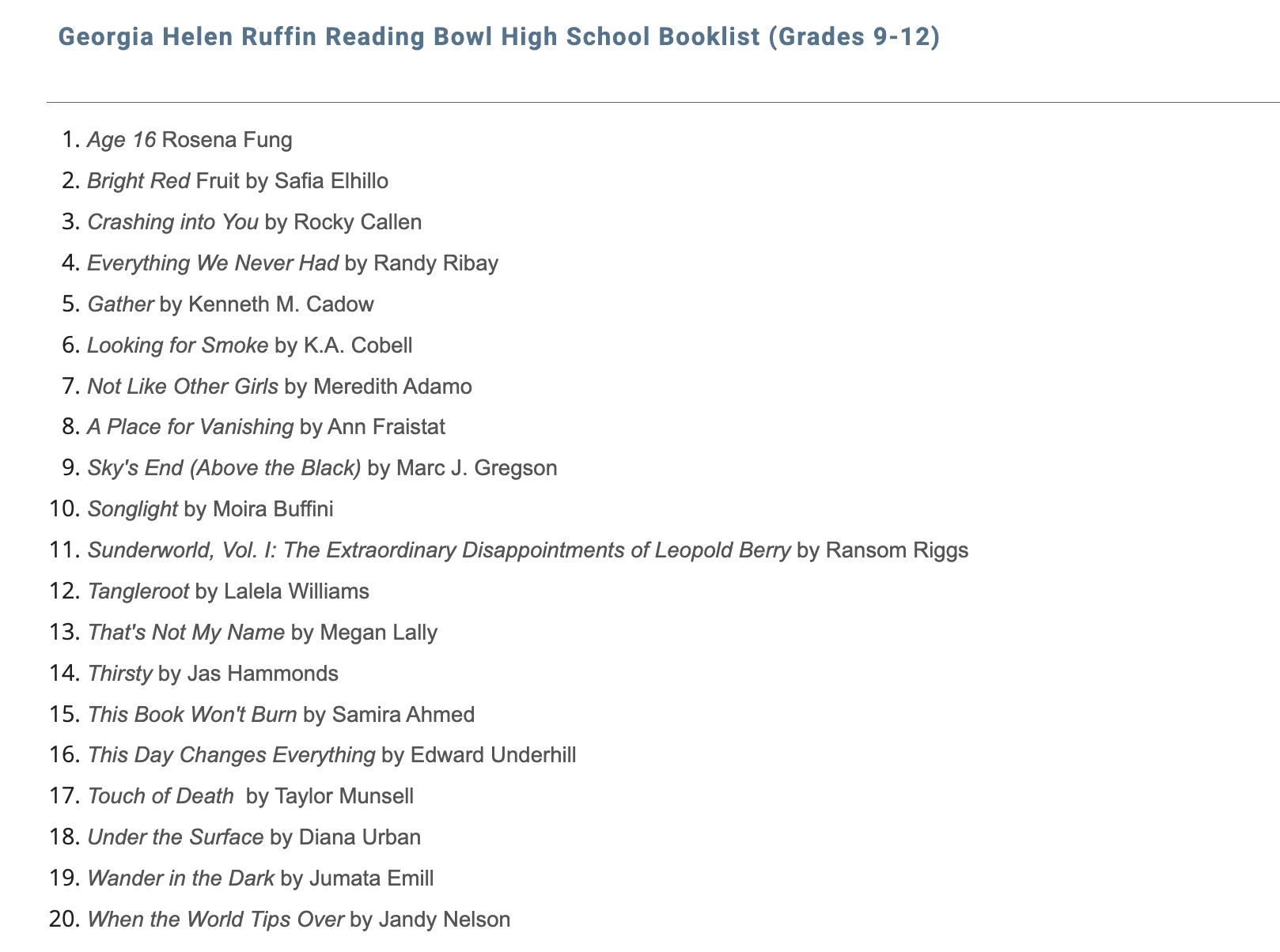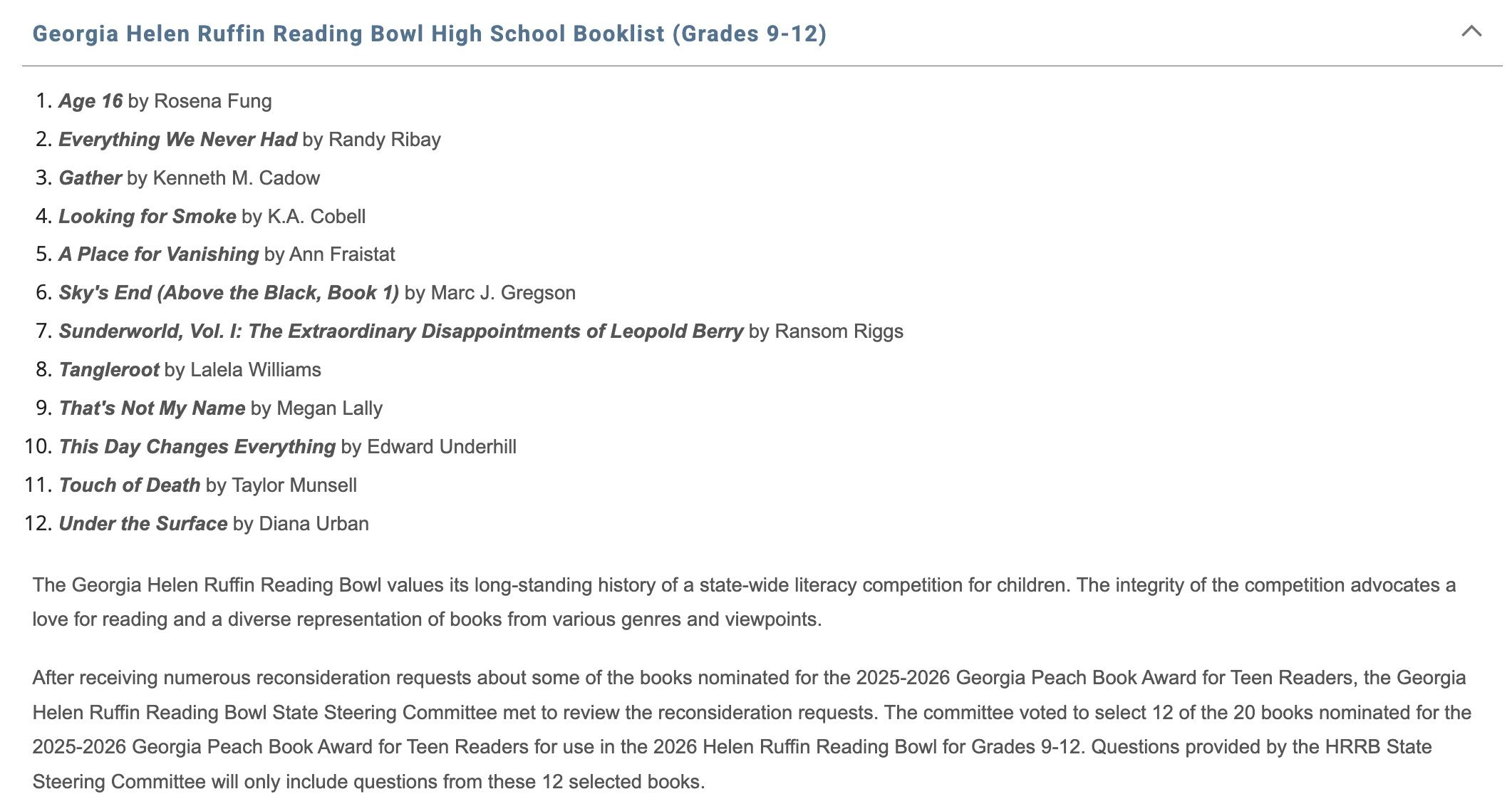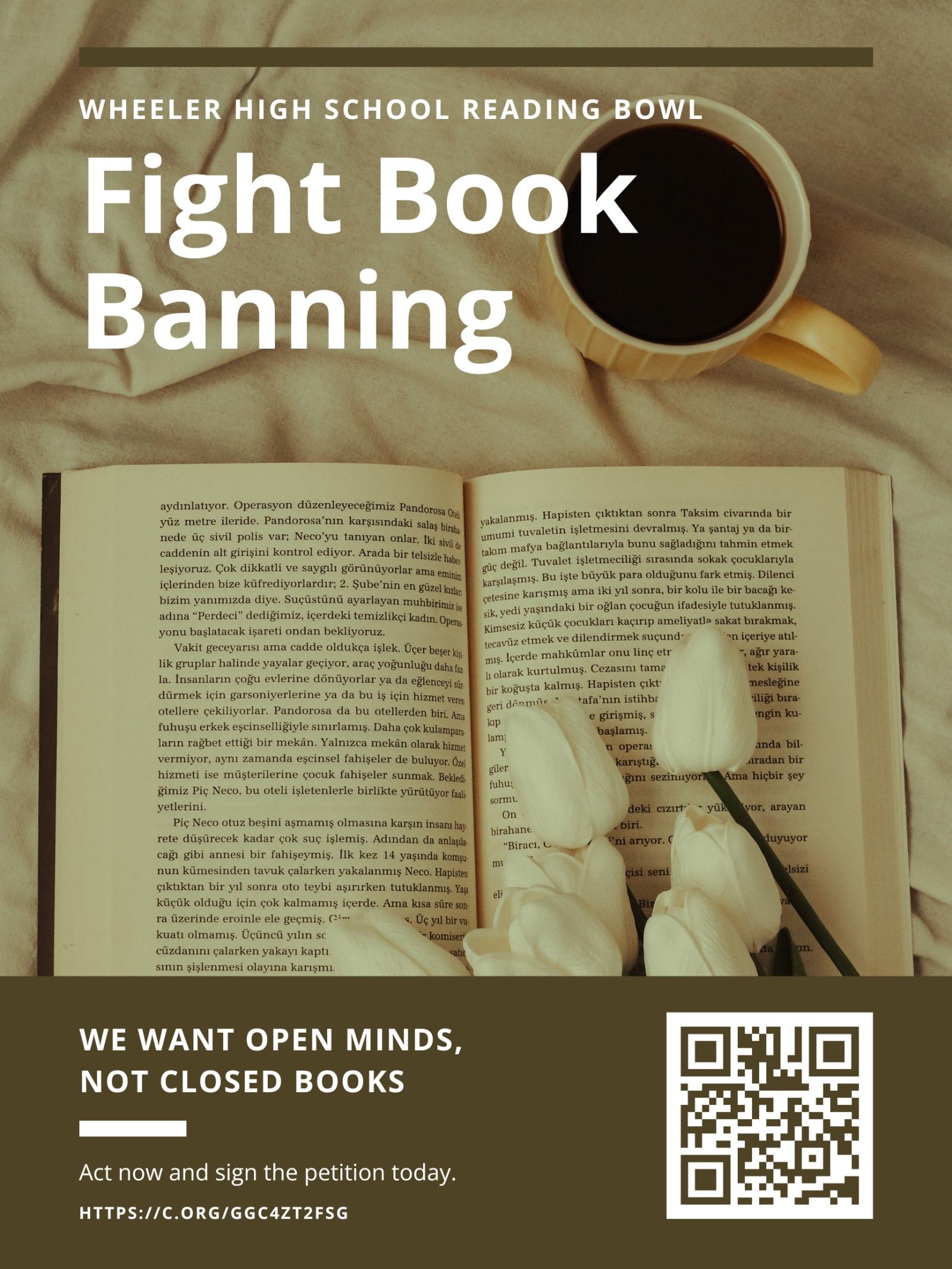This content contains affiliate links. When you buy through these links, we may earn an affiliate commission.
The Helen Ruffin Reading Bowl is an annual event put together by Georgia educators with a goal of getting young people excited about reading. School and public libraries host events throughout Georgia at the local, regional, and state level that encourage young readers to answer questions about the books they’ve read. It is entirely optional, with young people electing whether or not to participate.
Titles included in the Reading Bowl come from the Georgia Peach Book Award nominees. These titles are selected annually through a process that has school and public librarians read widely across recently-published titles to select 20 finalists. Students then have the opportunity to read and rate those books, allowing them the power to select the Georgia Peach Book Award Winner and the Georgia Peach Book Award Honorable Mentions. The Helen Ruffian Reading Bowl helps facilitate the process by encouraging teens to read from this list of finalists.
But there’s something different about this year’s Helen Ruffin Reading Bowl. Instead of encouraging a wide range of diverse reading, the Bowl has removed eight of the 20 titles for readers at the high school level. The decision came after “receiving numerous reconsideration requests about some of the books nominated for the 2025-2026 Georgia Peach Book Award for Teen Readers.” The steering committee elected to remove eight books from the list, not only narrowing the breadth of titles being discussed by teens across the state, but also narrowing the number of books they will be reading in anticipation of voting for the Georgia Peach Book Awards.
Here’s the original list of Helen Ruffin Reading Bowl titles for High Schoolers, available via the Wayback Machine:

The current list of books, available via the Reading Bowl’s website, looks quite different:
Literary Activism
News you can use plus tips and tools for the fight against censorship and other bookish activism!


The eight books banned from the Reading Bowl competition are:
All of these books are published for the young adult audience, meaning that the Bowl’s steering committee elected to remove books that are appropriate for the teens involved in this competition.
Seven of the eight banned books are written by female-identifying writers, while at least five are written by writers from demographically marginalized backgrounds.
Among the titles banned from the competition? Samira Ahmed’s book about the reality of book banning, written in response to the widespread censorship happening across America since early 2021. Other titles removed from the competition include themes commonly targeted by book banners both nationwide and in Georgia, including books about mental health (“social emotional learning”), the realities of life as a marginalized person (“diversity, equity, and inclusion”), and sexual assault (categorized under “comprehensive sexuality education” or “gender ideology,” in book banner parlance). Not Like Other Girls was the winner of the 2025 William C. Morris YA Debut Award, an honor bestowed by librarians through the American Library Association annually.
The removal of these books based on “numerous reconsideration complaints” raises several questions. Who submitted the complaints and what authority do they have to have their opinion on the books available to teens across the state for an optional Reading Bowl? Why would the steering committee capitulate to those requests? Why were those books a problem at all? Questions used in the Helen Ruffin Reading Bowl are created by a committee of educators and retired educators who are appointed by the program’s steering committee. If there was concern about the content of the questions, that was (and is!) entirely within the scope of the committee’s oversight.
Not to mention that many of the remaining books themselves contain topics that have become favorites among book banners. What rubric was used by the committee to remove some and not others? Teens engaged in the Reading Bowl–electing to spend their free time reading books and answering questions about them–now not only see that their reading choices are being undermined through the program, but will also now wonder how long until those attacks make their way more broadly onto the Georgia Peach Book Awards, which utilize their input.
This isn’t the first brush with book censorship that the Reading Bowl has had. In 2023, Cobb County’s Reading Bowl was canceled, “out of an abundance of caution, and in light of recent events.” That caution came due to the district’s book banning and fear that the titles included in the program–again, titles selected by state library workers–would come under fire.
Book censorship has become more common in Georgia since 2021. At least three public school districts had documented banned books in the 2024-2025 school year, including Cobb County, Colombia County, and Marietta County. This resulted in 43 books being banned.
As of writing, there has been no widespread coverage of the removal of these eight books from the optional Helen Ruffin Reading Bowl program. Readers are encouraged to contact the program’s steering committee to find out why the titles were removed and to request they be returned.
Students throughout the state have begun to push back on the decision as well. Wheeler High School students launched a petition, demanding more information about the decisions that went on behind the scenes to get these books pulled from the Reading Bowl. You can share the below image to spread the word and sign the petition here.


